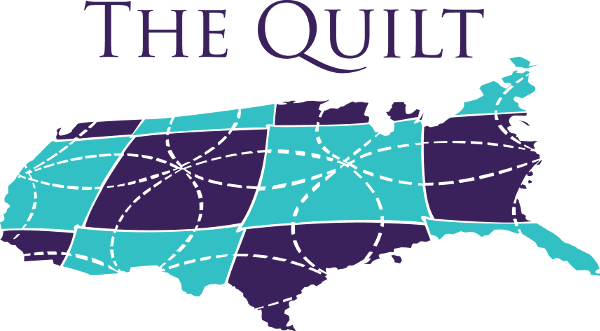Today Pacific Wave and Northern Wave announced an agreement that will allow their participants to peer with each other. Northern Wave will now connect Pacific Wave (www.pacificwave.net) in Seattle to the StarLight International/National Communications Exchange Facility (www.startap.net/starlight) in Chicago. This relationship provides new opportunities for international research and education networks and university participants to exchange networking traffic at multi-Gigabit rates between the Pacific Rim, the US, and Europe. In addition, researchers and educators at any connecting institution along the Northern Wave path in Illinois, Wisconsin, Minnesota, North Dakota, Montana, and Washington will have access to participants on the Pacific Wave exchange.
Pacific Wave is state-of-the-art peering exchange facility that, for over 10 years, has connected research, scientific, and education institutions and networks throughout the Pacific Rim and the world, increasing network efficiency and throughput while reducing latency and costs. Pacific Wave is a joint project of the Corporation for Education and Network Initiatives in California (CENIC) and the Pacific Northwest GigaPoP (PNWGP) and is designed to enhance the efficiency of research and education network traffic across the west coast of the US and with partners around the Pacific Rim.
Northern Wave is a similar facility recently funded by the National Science Foundation (NSF) via North Dakota State University (NDSU) and PNWGP to provide a new shared 10Gbps optical network connection between Seattle and Chicago for research and education institutions. The grant, part of NSF’s Academic Research Infrastructure program, funded optical equipment to build the network along a fiber path provided by PNWGP and the BOREAS network (a collaboration among the Universities of Iowa, Minnesota, and Wisconsin-Madison, and Iowa State University (www.boreas.net). “Northern Wave brings a significant new capacity to research and education networks through improved international communication facilities as well as the easy exchange of data for initiating collaborations with other institutions. This is especially important for the establishment of large competitive research centers. It will also provide connectivity to large computational and visualization platforms at remote locations,” says Kalpana Katti, North Dakota State University Distinguished Professor of Civil Engineering and NSF CAREER Award grantee.
“Connecting Northern Wave and Pacific Wave puts into place a new piece of the cyberinfrastructure necessary for complex interdisciplinary work on the cutting edge of science and technology,” said Amy Philipson, Executive Director, PNWGP. “Together with the other advances that Pacific Wave offers its participants, such as 100G networking along the US west coast, dynamic circuits, support for Science DMZ-model research networks, and software-defined networking, we’re delighted help facilitate the arrival of true 21st century networking.
” Northern Wave is supported by the National Science Foundation ARRA ARI Award No. 0963559.
Pacific Wave is supported by the National Science Foundation IRNC Award No. OCI-0962931.
StarLight receives support from the National Science Foundation, IRNC Award No. OCI-0962997 and ARRA ARI Award No. 0963095.
*About CENIC* California’s education and research communities leverage their networking resources under CENIC, the Corporation for Education Network Initiatives in California, in order to obtain cost-effective, high-bandwidth networking to support their missions and answer the needs of their faculty, staff, and students. CENIC designs, implements, and operates CalREN, the California Research and Education Network, a high-bandwidth, high-capacity Internet network specially designed to meet the unique requirements of these communities, and to which the vast majority of the state’s K-20 educational institutions are connected. In order to facilitate collaboration in education and research, CENIC also provides connectivity to non-California institutions and industry research organizations with which CENIC’s Associate researchers and educators are engaged. For more information, visit www.cenic.org.
*About North Dakota State University (NDSU)* North Dakota State University is a student-focused, land-grant, research university — an economic engine that educates students, conducts primary research, creates new knowledge and advances technology. The university provides affordable access to an excellent education at a top-ranked research institution that combines teaching and research in a rich learning environment, educating future leaders who will create solutions to national and global challenges that will shape a better world. For more information, please visit http://www.ndsu.edu/.
*About Pacific Northwest Gigapop (PNWGP)* The Pacific Northwest Gigapop is a nonprofit corporation serving research and education organizations throughout the Pacific Rim. They provide cost-effective, robust, reliable, high-bandwidth, and high-capacity networking to support the missions of these organizations and the needs of researchers, faculty, students, and staff. PNWGP designs, implements, and manages a multi-state high-bandwidth and high-capacity network specifically designed to meet unique requirements of research and education communities. For more information, please visit http://www.pnw-gigapop.net/.
*About StarLight* StarLight is the world’s most advanced national and international communications exchange facility. StarLight provides advanced networking services and technologies that are optimized for high-performance, large-scale metro, regional, national and global applications. With funding from the National Science Foundation (NSF), StarLight was designed and developed by researchers, for researchers. StarLight is managed by the Electronic Visualization Laboratory (EVL) at the University of Illinois at Chicago, the International Center for Advanced Internet Research (iCAIR) at Northwestern University, the Mathematics and Computer Science Division at Argonne National Laboratory, and Calit2 at University of California, San Diego, in partnership with Canada’s CANARIE national networking organization and The Netherlands’ SURFnet. (www.startap.net/starlight)
